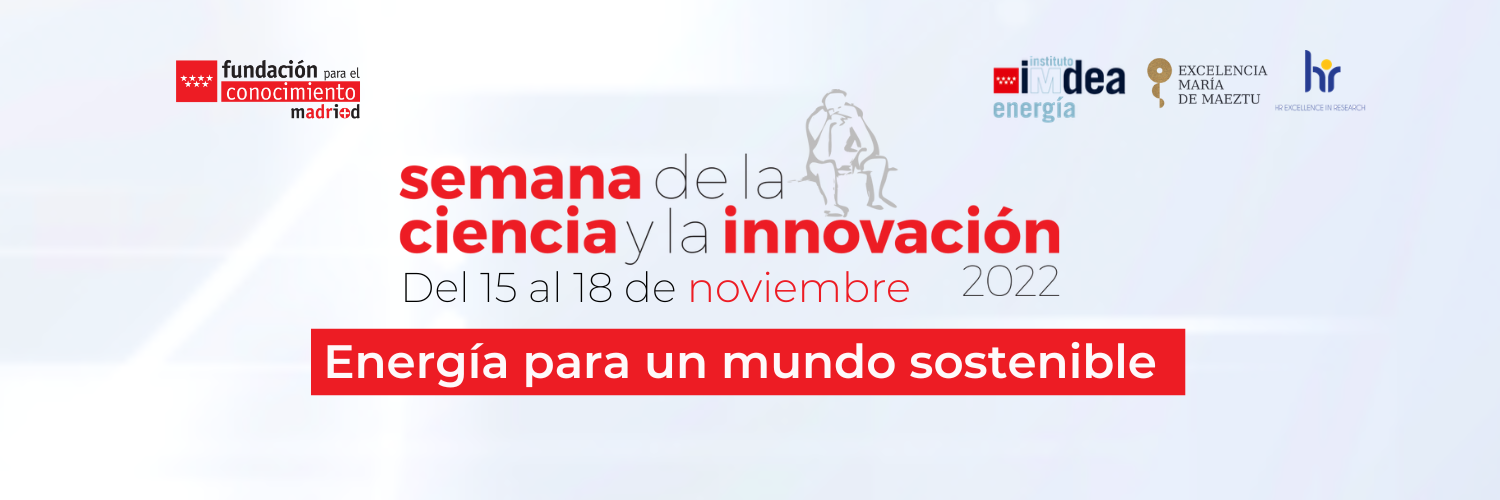Science week 2022

Once again, IMDEA Energy Institute is participating in the Madrid Science and Innovation Week, an event for scientific dissemination and citizen participation that aims to attract new audiences, involve new agents and institutions in the scientific process and make science more visible.
On 15, 16, 17 and 18 November from 9:30 am to 12 noon, the Institute will welcome Secondary and Baccalaureate students who will be able to take part in the following activities:
15TH AND 16TH
Biofuels workshop – Production of biodiesel on a laboratory scale
Production of biodiesel on a laboratory scale
This is a laboratory practice with an introduction to the importance of the use of biofuels as a substitute for traditional petroleum-based fuels, their socio-economic and environmental advantages, the types of biofuels that currently exist and an outline of the Spanish and European legislation that governs them. Next, biodiesel will be produced on a small scale from vegetable oil by means of the transesterification process. Finally, the formation of the synthesised biofuel will be quantified using an analytical technique, infrared spectroscopy (FTIR).
Electric vehicle workshop – Board game – Advantages and disadvantages compared to a petrol car; Opportunities and disadvantages of integrating electric car batteries into the electricity grid
Board game in which two teams will compete in a very unique race. One team will “drive” an electric car and the other a petrol car. The aim of the game is to raise awareness of electric vehicles, their advantages and disadvantages depending on the type of route chosen. In addition, the opportunities and disadvantages of integrating the batteries of electric cars into the electricity grid will be explained.
Visit to the pilot plants for pyrolysis, photosynthetic microorganisms and electrochemical devices.
http://www.energia.imdea.org/sites/default/files/pdf/Infraestructuras/Pyro_HDO_español_14.pdf
http://www.energia.imdea.org/sites/default/files/pdf/Infraestructuras/PMLab_español_14.pdf
https://www.energia.imdea.org/sites/default/files/pdf/Infraestructuras/EDTL_espa%C3%B1ol_14.pdf
The pyrolysis plant will be shown, a thermochemical process by which, by controlling its conditions, alternative second-generation advanced biofuels can be obtained from lignocellulosic waste (agricultural and forestry). The refining and subsequent upgrading stages of both pyrolysis oils and more traditional vegetable oils will also be explained. On the other hand, the pilot plant of photosynthetic microorganisms will be visited with the different photobioreactors for the cultivation of microalgae (tubular and raceways) for the production of third generation biofuels, as well as reactors for the production of biogas from sewage treatment plant waste flows using cultivated microalgae as a substrate. Finally, the electrochemical devices test laboratory will present the different energy storage devices, mainly batteries, which can be used for different applications, from mobile devices, automotive or storage linked to renewable energies.
17TH AND 18TH
Workshop on the manufacture of solar cells using dyes, artificial photosynthesis and porous materials
A thin film type photovoltaic cell will be fabricated using porous titania and some ingredients easily found in everyday life. The function of each material and the basic mechanism of the cell will be understood and these concepts will be used in the understanding of artificial photosynthesis. The importance of the use of porous materials in accelerating the process and their implication for the applicability of these technologies will also be highlighted.
Quiz on energy systems: How much do you know about the energy crisis?
Participants will have to complete a Kahoot quiz on energy systems from the perspectives of life cycle analysis, process simulation and energy planning. In addition, they will discuss together why these are important tools in the current energy crisis.
Workshop on concentrating solar power. Explanation and demonstration of different forms of CSP conversion
The activity begins with an explanation of CSP and different forms of conversion (into heat, mechanical energy, electrical energy and chemical energy) supported by several posters. Each of the theoretical explanations is complemented by a practical demonstrator so that participants can see them in operation. For the conversion into heat, a solar cooker will be demonstrated. For the conversion into electricity, a thermoelectric generator (Seebeck effect) illuminated by a halogen spotlight will be used. For the conversion into mechanical energy, a Stirling engine and a mirror reflecting the light from the spotlight will be used. For the conversion into chemical energy, the concept of the Sun-To-Liquid project for the production of aviation paraffin will be explained.
Register here (from 24 October)
More information:
lorena.esquinas@imdea.org
91 737 11 29


